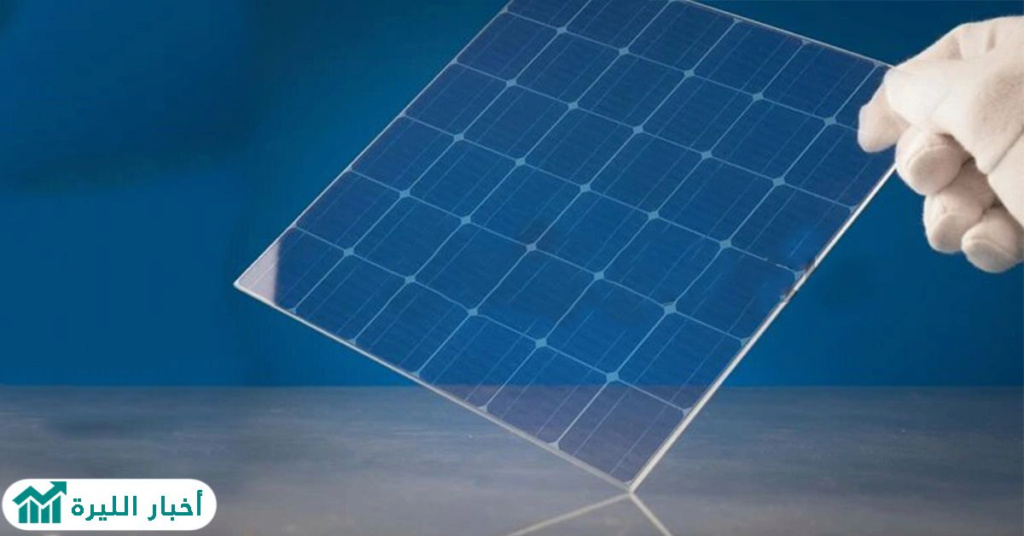Transparent solar panels .. the latest Russian innovation
The innovations and developments that scientists reach from time to time continue, but in the last stage, the greatest interest was towards the field of alternative energies, especially solar energy, as solar panels became the focus of scientists’ attention in an attempt to reach the most advanced and least expensive with greater productivity, but That the latest findings of scientists was a kind of fantasy.
The idea of creating transparent solar cells
Western scholars and local specialists are grappling with this problem. As it became known, physicists of ITMO University not only achieved the desired effect, but also significantly reduced the cost of technology.
Transparent solar cells have a major advantage over current offerings: they can be affixed to even conventional glass, which will generate power without compromising the visibility of the windows.
In fact, this method will significantly reduce the consumption of fossil fuels. The main problem with all these technologies is low efficiency and high energy losses.
In addition, the manufacture of special electrodes for transmitting light is a very expensive procedure.
Manufacturing components
The Russian methodology, proposed by ITMO University specialists, is fundamentally different from all other technologies, using alloys to solve the efficiency problem. But the problem of cell adhesion was solved due to the ionic liquid changing the properties of the treated layer. The result is a solar cell with high transparency without loss of efficiency.
I took a solar cell based on small particles, on which nanotubes were placed as a transparent electrode. Then, the nanotube coating was doped with an ion gate. The transport layer has also been processed,
It is responsible for ensuring that the charge from the active layer reaches the electrode successfully. The researchers were able to do without vacuum chambers and worked in an atmosphere of air. "We just had to drop an ionic liquid and use a little bit of effort to get the desired properties," say the physicists.
As a result, scientists were able to increase the efficiency of cells several times. They think they can improve the properties of other solar cells, too.
innovation from the past
Nano Energy reports that University of Pennsylvania scientists have created new ultra-thin metal electrodes that could become the mainstay of a transparent perovskite solar panel.
Solar panels are usually made of silicon, but the effectiveness of this material gradually declines over time. So the researchers are working with perovskite, which when used on standard silicon plates greatly increases their efficiency.
Now researchers have created electrodes from gold nanoparticles needed to power the solar cell, only a few atoms thick, and they are good conductors of electricity while not preventing solar panels from absorbing light.
Previous studies had revealed that gold nanoparticles are not spread evenly on the solar panel, but rather collect in the form of separate islands, which causes a decrease in its electrical conductivity.
Now the researchers were able to solve this problem by adding an extra layer of chromium to the electrode, which made the gold nanoparticles spread evenly on the solar panels, increasing their electrical conductivity.
On the basis of the transparent electrode, the engineers created a bipolar plate with an efficiency factor of 28.3%, while a perovskite plate showed an efficiency factor of 19.8%. This is a record for the productivity of such panels. From this it is clear that the efficiency coefficient of the duplex board is higher by 5%.
Professor Shashank Priya of the University of Pennsylvania says, "An improvement of 5% can be considered a great success. Because it means that each square meter of solar cells can obtain an additional power of 50 watts. As is known, solar power plants consist of thousands of units, that is, we get Big electric power. That in itself is a huge breakthrough."
Source: arabruslibrary.com + Russia Today
https://liranews.info/articles/998?fbclid=IwAR238lfcmoCAVHh9KQvoLAXIStVN3t0TDGdi5r1vYzpalA3pMSMwGMwZtRc


